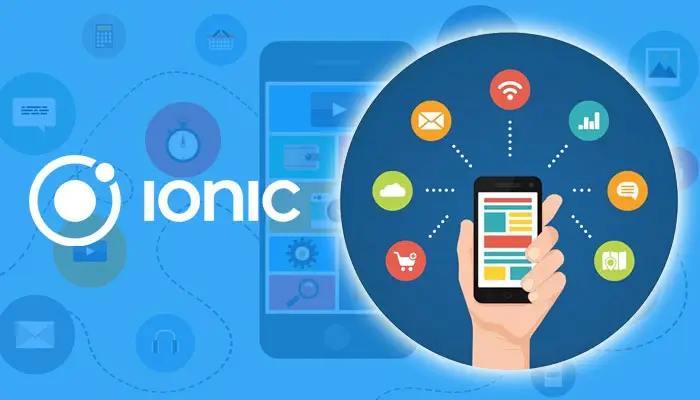
Mobile App Development
 Lets Talk
Lets Talk
The Evolution of Ionic
By, Amy S
- 27 Nov, 2023
- 558 Views
- 0 Comment
Ionic is one technology used in html5 hybrids. It is an open-source kit that is built on AngularJS and Apache Cordova, and focuses on the front-end of mobile app development, allowing apps to be deployed using the popular JavaScript frameworks Cordova and Adobe PhoneGap (another open-source Cordova distribution). Apps are built using HTML5, JavaScript, and CSS (or SaSS), and provide a user interface that is virtually indistinguishable from a native app.
As discussed in the previous post, the biggest advantage to development using Ionic or other hybrid technologies is the ability to develop an app to be used on multiple platforms at once (develop once, deploy everywhere). Otherwise, native apps that would appear on more than one operating system (iOS and Android, for example) would need to be coded separately for each language (iOS apps are based in Objective-C, Android apps in Java). In addition to the extra time and cost of developing an app in multiple languages, native development often faces the additional challenge of having the app look and perform the same using these separate codes.
Developing in Ionic produces a single cross-platform app that only needs to be slightly customized for each new operating system. Ionic currently supports iOS 7 and up, Android 4.1 and up, and BlackBerry 10 applications. Support for Windows will be included in the announced Ionic 2. Though the alpha version of Ionic was only released in November 2013, Ionic is now able to create applications that far surpass the quality and consistency of other HTML5-based hybrid apps. In 2015 alone, it is estimated that 1.3 million apps were created using the Ionic software development kit.
Digital Fractal Technologies is an Edmonton, Alberta-based software development company that focuses on data-driven mobile applications. We develop both cross-platform apps (using Ionic, Xamarin, and other technologies) as well as native mobile applications. For a free consultation, please contact us.
Start your free consultation
Ready to discuss your project idea?
Recent Posts
Category
- Android (10)
- Artificial Intelligence (42)
- Blockchain (2)
- Cyber Security (2)
- Cybersecurity (6)
- Digital Transformation (41)
- Industry News (13)
- Infographics (10)
- iOS (2)
- Mobile App Development (81)
- Software (1)
- Uncategorized (3)
- Web development (11)
- Workflow Automation (3)
All Tag
Archives
- July 2025
- June 2025
- May 2025
- April 2025
- March 2025
- February 2025
- January 2025
- October 2024
- September 2024
- July 2024
- June 2024
- May 2024
- April 2024
- February 2024
- January 2024
- December 2023
- November 2023
- October 2023
- September 2023
- July 2023
- June 2023
- May 2023
- March 2023
- December 2022
- November 2022
- October 2022
- April 2022
- March 2021
- February 2021
- January 2021
- December 2020
- November 2020
- October 2020
- September 2020
- August 2020
- July 2020
- June 2020

